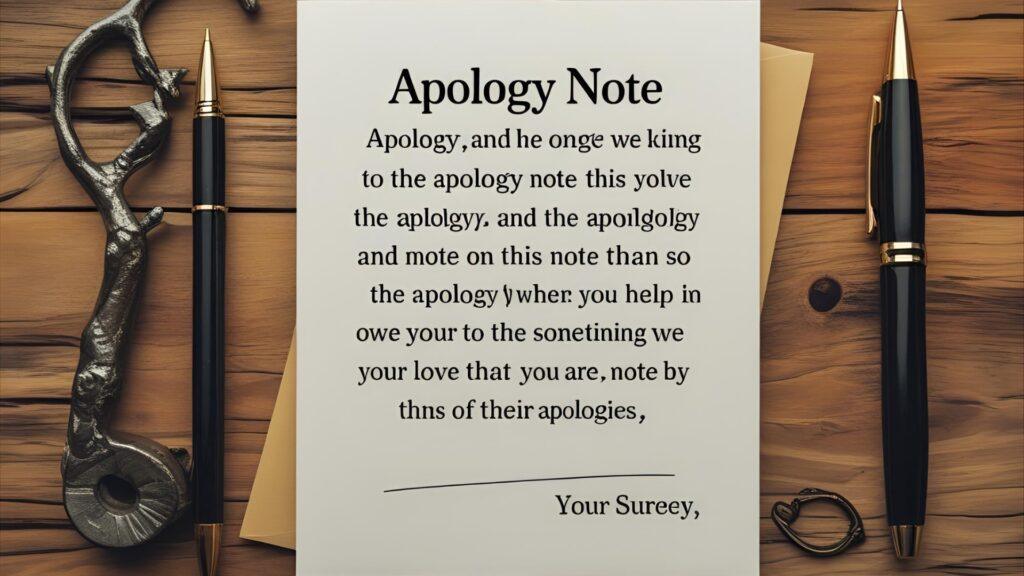You’ve probably seen one before. A post with just a few words. Maybe a sentence or two. And yet—it hits you harder than a whole book.
Take this one: “For sale: baby shoes, never worn.”
Just six words. No names, no details. But it says a lot, right? You feel the pain, the silence, the whole backstory that’s never even told.
That’s what makes short stories powerful. They don’t yell. They whisper. And sometimes, that whisper stays with you longer than anything else.
That’s the magic of very short stories with moral—they say little, but mean everything.
Very Short Stories With Moral
Want a spark of wisdom in just a few words? These bite-sized tales pack big lessons you’ll carry all day.
1. “The Birthday Balloon”

It was her seventh birthday. She had one balloon—bright red, tied tightly around her wrist. It bobbed with her every skip as she walked with her mom through the park. She didn’t have a party. No cake. No guests. Just that balloon and her smile.
Then she saw him. A little boy, younger than her, sitting on a bench and crying. His balloon had popped, lying flat beside him like a forgotten dream. His mom tried to cheer him up, but nothing worked.
She looked at her balloon. Then at the boy. Then she walked over, untied it carefully, and held it out to him.
He stopped crying. Took it. Smiled.
Her mom asked, “Are you sure?”
She nodded. “He needed it more.”
She skipped the rest of the way home with an empty wrist and a full heart.
Moral: Joy grows when it’s shared.
2. “The Missed Bus”

He was already late. The bus was waiting at the stop, doors open. But just as he picked up speed, he saw an old lady struggling to cross the road, clutching two grocery bags.
He hesitated. The bus wouldn’t wait. But neither could she.
He ran to her instead, helped her cross slowly, even joked to make her laugh. The bus pulled away. He sighed, ready to be scolded at work again.
Fifteen minutes later, standing at the next stop, another bus arrived. As he boarded, he overheard two passengers talking—about the accident.
His eyes widened. The bus he had missed had crashed down the slope. Several were injured.
He sat quietly, heart pounding. That old lady’s smile had saved his day—and maybe his life.
Moral: Doing good can quietly protect you.
3. “The Apology Note”

She didn’t know how to say it out loud. So she wrote it down. A small note. Three words: “I am sorry.”
They had not spoken in days. A fight over something small had turned into silence.
She folded the paper, slid it onto his desk at school when no one was looking, and left before he saw her.
He found it after lunch. No name, but he knew. He read it. Once. Twice. Then folded it again and placed it in his pocket.
They did not talk that day. But the next morning, he smiled at her in class.
Weeks later, years even, he still kept the note in a small box at home. It was wrinkled now, the ink faded. But he never threw it away.
Some words stay. Some words matter.
Moral: Even small sorries can heal big wounds.
4. “The Jacket Swap”

It was freezing. The wind cut through the streets like blades. He tightened his jacket and hurried along.
Then he saw the man—sitting under the bridge, arms wrapped around himself, shivering. No blanket. No warmth. Just the cold.
He stopped. Looked down. His own jacket was old, but it still did its job. He hesitated. Then he took it off, knelt down, and gently draped it over the man’s shoulders.
“Take it,” he said quietly.
The man looked up, stunned. “Why?”
“Because I can.”
He walked home that night in just his shirt. Teeth chattering, arms wrapped around his chest. But inside, something glowed.
He smiled the whole way.
Moral: Kindness warms more than comfort ever could.
5. “The Plant”

Every morning, he watered it. A small plant in a ceramic pot, sitting by the window. For two years, it showed nothing—just soil and hope.
It had been hers. His late wife’s favorite. She had planted it but never lived to see it bloom.
He kept the routine. Same time. Same amount. A quiet ritual of love. Friends told him to stop. That it was pointless. But he couldn’t.
Then one morning, on the anniversary of her passing, he walked to the window and stopped.
A bloom. Small, pale pink. Soft as her voice.
He didn’t cry. He just smiled.
Later that day, he carried the pot to her grave. Placed it gently beside her name.
Some things take time. Some love never fades.
Moral: Some love shows up long after.
6. “The Exam Pencil”

She had only one pencil. A stub, sharpened to its last breath. But it worked. Just enough for one test.
Then he tapped her shoulder. “Do you have a spare?”
He looked desperate. She looked at her pencil. Then at him.
And without a word, she broke it in two and gave him half.
The exam began. Her pencil kept slipping. It was too short. Her hand cramped. She barely finished. Her answers were rushed.
Days later, the results came in. She passed. Just barely.
He topped the class. Smiled at her with tears in his eyes.
“I couldn’t have done it without you,” he whispered.
She smiled back. It was enough.
Moral: Being generous is never a failure.
7. “The Forgotten Call”

He almost didn’t call that night. It had been a long day, and he was tired. “I’ll call Dad tomorrow,” he told himself.
But something nudged him. So he picked up the phone and dialed.
They talked about nothing—weather, sports, what he had for dinner. Then Dad told an old joke that still made him laugh like a kid.
They said “goodnight” and hung up.
The next morning, the phone rang.
His dad had passed away in his sleep.
He sat there, holding the phone, tears streaming. But deep down, he was grateful.
Their last words had been a laugh.
Moral: Don’t delay the small moments. They matter most.
Why We Need Short Stories Now More Than Ever
Life’s fast. We’re scrolling all day, switching between apps, rushing from one thing to the next. Most of us don’t have time to sit and read for hours.
That’s why short stories work so well today. In just a few seconds, they can make you pause. They can make you feel something real. They connect—without taking up your whole day.
And when these stories come with a little moral or message, they do more than entertain. They actually leave you thinking.
Why Short Hits Harder?
Let’s be honest. Our attention spans are short. People usually spend less than 15 seconds reading something before moving on. It’s not that we don’t care—we just don’t have the time.
Short stories are perfect for that. They’re like strong coffee. Small, quick, and straight to the point—but they leave a punch. They say more with less, and that’s what makes them stick.
How These Stories Fit Into Real Life
These tiny tales can show up almost anywhere.
On social media, one short post can stop someone mid-scroll. In classrooms, teachers use them to start the day or spark a chat. At home, parents can read one at bedtime. They’re easier than long books but still meaningful. Even at work, sharing one in a meeting can make people think differently.
They fit right in—wherever you are.
What Makes Morals Matter So Much?
A moral isn’t just something cheesy at the end of a story. It’s the whole reason the story means anything. It’s what the reader takes away.
Sometimes it’s clear—like “Be kind.” Other times, it’s quiet—you just feel it.
But whether it’s said or not, the moral is what makes the story matter. It’s what stays with us after we’ve read it.
Why We Still Need Morals Today
Let’s be real—life’s loud. Ads, opinions, arguments… it’s all noise. But under all that, people are still looking for something real. Something that reminds us who we are.
That’s where short moral stories come in. They cut through the noise. They remind us to care. To reflect. To do better.
For kids, they help shape the way they see things. For adults, they help us remember what used to matter—or maybe what still should.
Where These Stories Belong
You can use these stories anywhere.
- In schools, to teach without sounding preachy.
- At home, to start real talks at the dinner table.
- On social media, where people are craving something real.
- In offices, where values often get pushed aside.
They’re simple, but they reach people—fast and deep.
What Makes a Short Story Work?
Even a tiny story needs a little structure. Here’s what helps:
Character
Even if we don’t know their name, we need to know who the story is about. A kid. A grandma. A dog. Anyone. But we need someone to care about.
Conflict
There should be something happening. A choice. A mistake. A moment where something matters.
A Resolution
Maybe it ends with a twist, a soft moment, or a big realization. But by the end, something has changed—even if it’s just a feeling.
A Moral
The message doesn’t have to be written out, but the reader should feel it. Something should stay with them after they read it.
Want to Write One Yourself? Here’s How
If a tiny story can move hearts in just a few words, imagine what yours could do. Ready to try? Let’s break it down step by step.
Start With a Message
Think about the lesson or truth you want to share. Something simple and honest—like “Kindness matters” or “Don’t take people for granted.”
Pick a Format That Feels Easy
Try a sentence or two to start. Or go for a six-word challenge. Keep it short and sweet.
Focus on a Moment
Don’t try to tell a full story. Just pick one moment that shows your message in action.
Make the Ending Count
The last line should hit home. It can be a twist, a smile, or a soft pause that lingers.
Edit It Down
Cut extra words. Replace weak words with stronger ones. Make sure every word earns its place.
Test It Out
Read it to a friend or a kid. Ask, “What does this story mean to you?” If they get it, you nailed it.
How You Can Use These Stories Daily?
A tiny tale can spark a big shift—in your mood, your mindset, even your day. Here’s how to make them part of your everyday life.
In Classrooms
Use them as journal prompts or for quick discussions. Ask students to write their own or explain what the story means to them.
At Home
Share one before bedtime. Ask your kids what they learned or how they’d finish the story.
On Social Media
Post a story as a caption or tweet. Ask people what it means to them. You’ll start real conversations.
In Groups or Workshops
Have everyone write a short story about a value they believe in. Then share and talk about them. It’s simple, but it brings people closer.
Final Thoughts
Short stories with morals aren’t just for writers. They’re for anyone who wants to say something that matters. They’re small windows into big ideas. Tiny reminders of who we are and what we care about.
So go ahead—try it. Write one. Keep it simple. Make it real. You don’t need a big word count to make a big impact.
Sometimes, just a sentence or two is enough to change someone’s whole day.
Mark Richards is the creative mind behind Classica FM, a podcast platform that brings stories, knowledge, and inspiration to listeners of all ages. With a passion for storytelling and a love for diverse topics, he curates engaging content—from kids’ tales to thought-provoking discussions for young adults.



